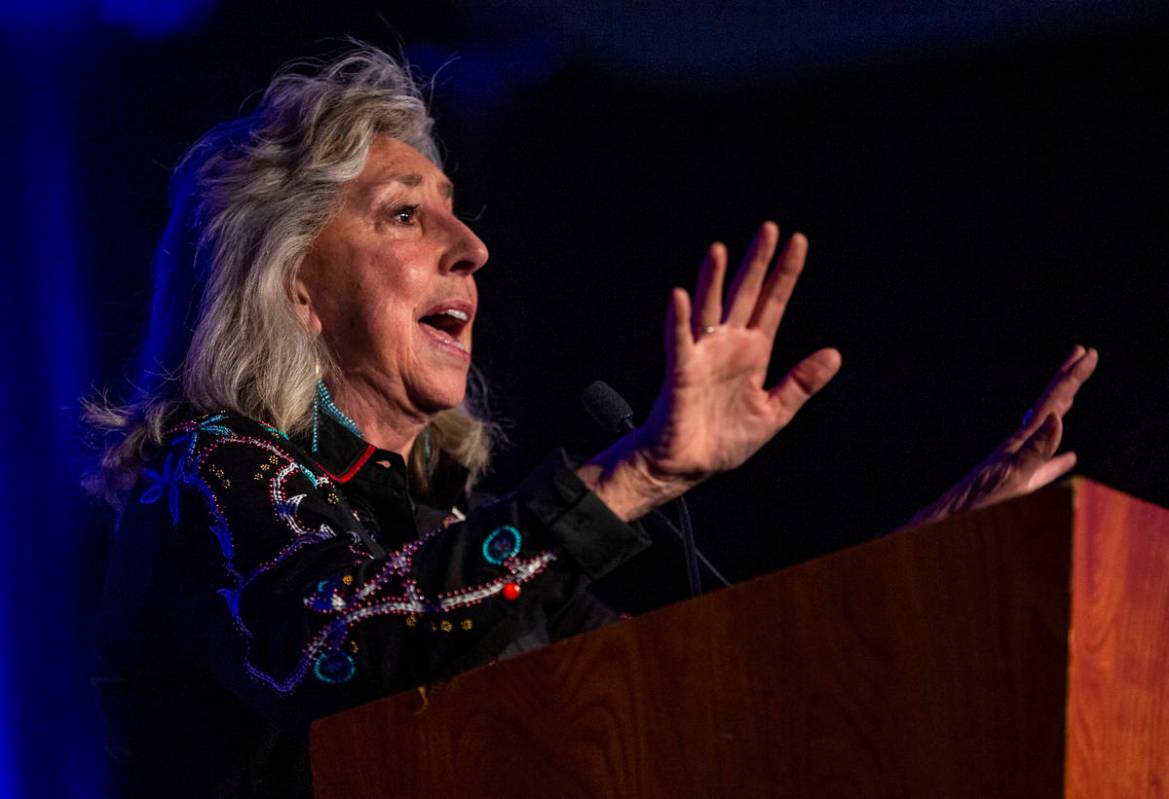Congress divided over coronavirus aid to local governments

WASHINGTON — Americans started receiving their government relief checks Wednesday, but states and cities continued to clamor for more aid and congressional Republicans and Democrats remained at odds over the next round of coronavirus aid.
Checks that were part of the $2.2 trillion coronavirus relief bill started arriving in bank accounts as the government tries to buffer the economic losses to U.S. workers and families caused by the coronavirus pandemic.
Still, a bipartisan group of governors, including Nevada Gov. Steve Sisolak, asked the White House and Congress to approve an additional $500 billion to stave off budget shortfalls as local tax revenues grind to a halt with businesses shuttered during the outbreak.
Cities complained about budget shortfalls due to reduced tax income and unexpected expenditures to battle the virus that has left most of the nation shut down.
The $2.2 trillion bill set aside $150 billion for states and large cities, but municipalities with populations below 500,000 were left out.
Cities facing shortfalls
“Local governments in Southern Nevada and across the country are facing dire budget challenges as they fight this pandemic,” said Rep. Dina Titus, D-Nev.
Titus said the smaller cities in the state are “being forced to increase spending while receiving less revenue.”
Southern Nevada’s three Democratic House members — Titus and Reps. Susie Lee and Steven Horsford — have signed on to the Coronavirus Community Relief Act sponsored by Rep. Joe Neguse, D-Colo. The bill would allocate $250 billion for cities with populations of 500,000 or fewer.
The Nevada Association of Counties has spoken with Sens. Catherine Cortez Masto and Jacky Rosen, both Democrats, about aid needed as COVID-19 takes an economic toll on counties, rural and urban.
Cortez Masto held a teleconference last week with county officials about applications for disaster assistance and other forms of relief being distributed through the state and various federal departments and agencies.
Disagreement over next bill
Still, Republicans and Democrats in Congress remain at a stalemate over how to write the next relief bill and whether it will include money for states, cities and hospitals, which have spent budgets for coronavirus preparation while discouraging elective surgeries that provide profits.
Senate Republicans have held firm that the next relief bill should include $250 billion to keep the Paycheck Protection Program for small businesses up and running. Funds in the existing legislation will be exhausted on Thursday.
Senate Majority Leader Mitch McConnell, R-Ky., has sought a straight bill focused on small businesses before Congress writes more complicated legislation. But Democrats blocked a Senate bill for small businesses last week, and House Democrats insist that the next bill include aid to states, cities and hospitals.
“Democrats know that in order for the Paycheck Protection Program to succeed, it must work for everyone,” said House Speaker Nancy Pelosi, D-Calif.
She said she is asking the Trump administration to work directly with Democrats to write a bill that helps small businesses struggling for access to paycheck protection funds, as well as state and local governments and hospitals.
Titus said that she has talked with several Southern Nevada mayors, and that funds must be made available to them in the next relief package.
“We must make sure those funds can be used to cover budget losses in large cities and small towns,” she said. “Otherwise, it’s not just local government jobs that will be lost. So will many of the essential services that counties and cities provide.”
Henderson Mayor Debra March, Las Vegas Mayor Carolyn Goodman and Reno Mayor Hillary Schieve have urged Congress to provide more funding.
Meanwhile, American workers and families began receiving assistance in the form of checks issued by the government to help individuals earning up to $99,000 per year and couples earning up to $150,000.
Unemployment nationwide has reached Depression-era levels as states have ordered nonessential businesses closed and airlines and public transportation have nearly shut down as people remain at home.
But the IRS has warned that distribution of the checks will take weeks, as those who have filed federal income taxes with banking account information will likely receive money first. Those who didn’t file a return may have to wait as long as 20 weeks.
Contact Gary Martin at gmartin@reviewjournal.com or 202-662-7390. Follow @garymartindc on Twitter.